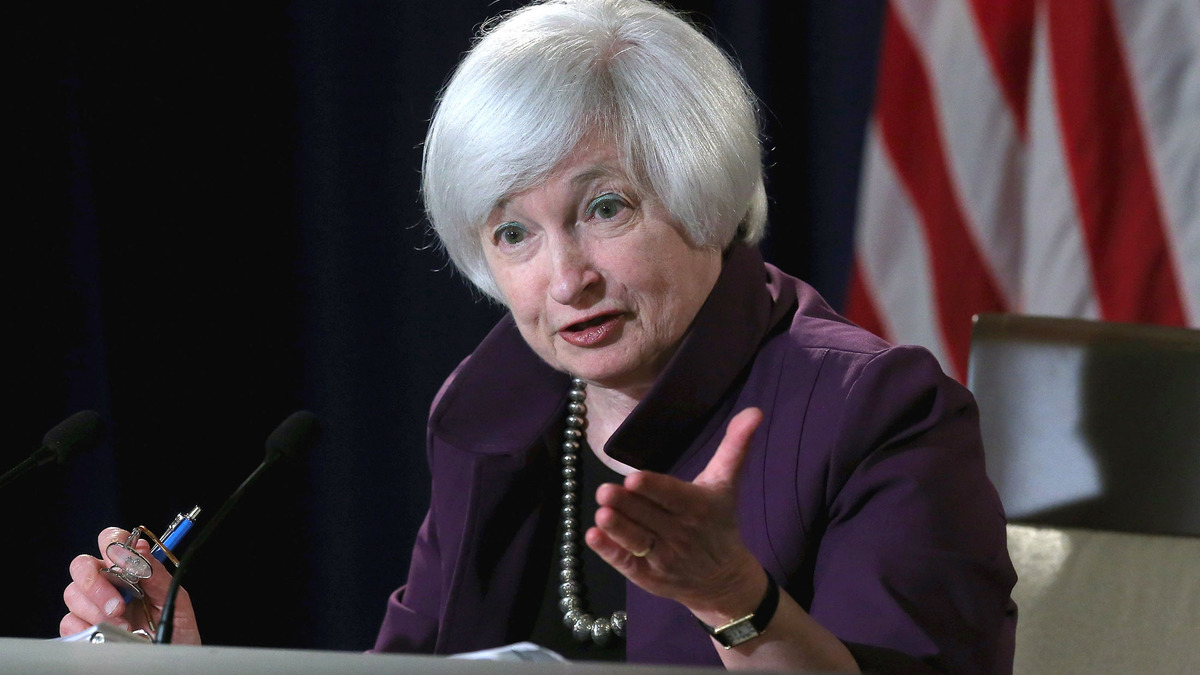- Yellen Backs Gradual Rate Rises as Fed Not Behind the Curve
Federal Reserve Chair Janet Yellen backed a strategy for gradually raising interest rates, arguing that the central bank wasn’t behind the curve in containing inflation pressures but nevertheless can’t afford to allow the economy to run too hot.
“I consider it prudent to adjust the stance of monetary policy gradually over time,” she said Thursday in remarks to the Stanford Institute for Economic Policy Research in California, while stressing the considerable doubt surrounding that outlook.
Yellen’s second speech this week comes just a day before the inauguration of Donald Trump as U.S. president. She said that future alterations in fiscal policy were just one of the many uncertainties that the Fed would have to grapple with as it plots its monetary moves in the months ahead.
Not only is the size, timing and composition of such changes unclear, estimates of their impact on the economy by budget experts vary considerably, Yellen noted in a footnote to the speech.
“She doesn’t feel like the economy is overheating,” said Laura Rosner, senior U.S. economist at BNP Paribas in New York. “Nothing in her speech gave a strong signal that a hike is coming in March.” Policy makers next meet Jan. 31-Feb. 1, followed by a gathering on March 14-15.
In making the case that the Fed had not fallen behind the curve, Yellen said that wages had risen “only modestly” and the manufacturing sector was operating well below capacity.
‘Seems Unlikely’
What’s more, she didn’t see that changing soon. Payroll growth has slowed while the economic expansion “seems unlikely to pick up markedly in the near term” given weak foreign demand and prospective gradual increases in interest rates, she said.
Still, she saw dangers in permitting the economy to overheat and inflation expectations to get out of control. “Allowing the economy to run markedly and persistently ‘hot’ would be risky and unwise,” she said.
Another factor arguing for a gradual approach to raising interest rates is what Yellen called a “passive” removal of monetary accommodation via the Fed’s balance sheet.
In another footnote to her speech, Yellen said a shortening in the average maturity of the central bank’s bond holdings and the approach of an eventual reduction in its balance sheet could increase the yield on the 10-year Treasury note by 15 basis points this year. That would be roughly equivalent to two 25 basis point increase in the inter-bank federal funds rate. She did not say when the reduction in the balance sheet would begin.
The Fed raised interest rates in December for the first time in a year, lifting its target range for the benchmark federal funds rate to 0.5 percent to 0.75 percent. Policy makers have penciled in three quarter-point increases for 2017, according to the median of their quarterly estimates in December.
Yellen spelled out in detail a point that she also made in her shorter speech on Wednesday, namely, that the Fed was close to achieving its goals of full employment and stable prices.
The jobless rate stood at 4.7 percent in December, slightly below the level most Fed policy makers view as full employment.
“In the coming months, I expect some further strengthening in labor market conditions as the economy continues to expand at a moderate pace,” Yellen said.
The “strong labor market” should help lift inflation to the Fed’s 2 percent goal over the next couple of years, she added.
As measured by the personal consumption expenditure price index, inflation rose 1.4 percent in the 12 months through November. That’s up markedly from 0.5 percent on the same basis in November 2015, in part because of a rebound in oil prices.
Answering audience questions, Yellen described the risks to stability of the financial system as “moderate” and nowhere near as big as they were in the midst of the 2008-09 crisis. “There’s a little less to lose sleep about now,” she said.
One potential danger on the U.S. central bank’s radar screen: financial developments in China, though Yellen said the Fed thinks the Asian nation has the ability to deal with them.
Yellen and Taylor
Yellen spent much of her speech discussing the benefits and drawbacks of using simple rules to guide monetary policy, such as one developed by John Taylor, a scholar at the Stanford Institute and a professor at Stanford University.
In response to a question from Taylor, who was in the audience, Yellen said she believed in “systematic monetary policy” but was opposed to efforts by Republican lawmakers to force the Fed to adopt a rule of its own choosing to guide policy.
While rules can serve as “useful benchmarks,” they often do not take into account important factors potentially affecting the economic outlook, such as fiscal policy, she said in her speech.
Given all the uncertainties, determining how best to adjust interest rates to sustain a strong jobs market while maintaining low and stable inflation “will not be easy,” Yellen said.


 Forex3 weeks ago
Forex3 weeks ago
 Naira3 weeks ago
Naira3 weeks ago
 Billionaire Watch2 weeks ago
Billionaire Watch2 weeks ago


 Naira3 weeks ago
Naira3 weeks ago




 Naira2 weeks ago
Naira2 weeks ago




 Naira1 week ago
Naira1 week ago




 Naira4 weeks ago
Naira4 weeks ago
 Banking Sector4 weeks ago
Banking Sector4 weeks ago























